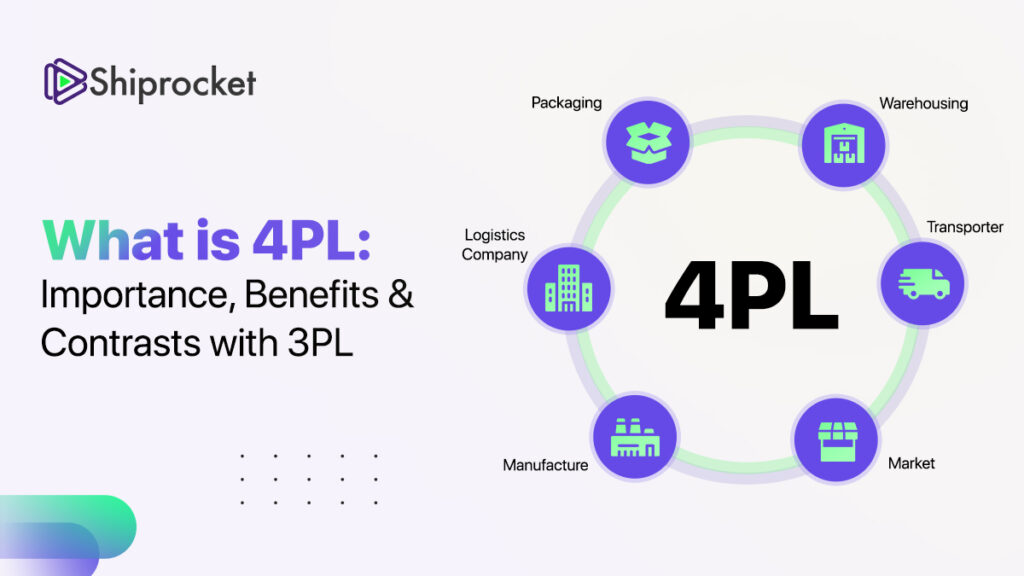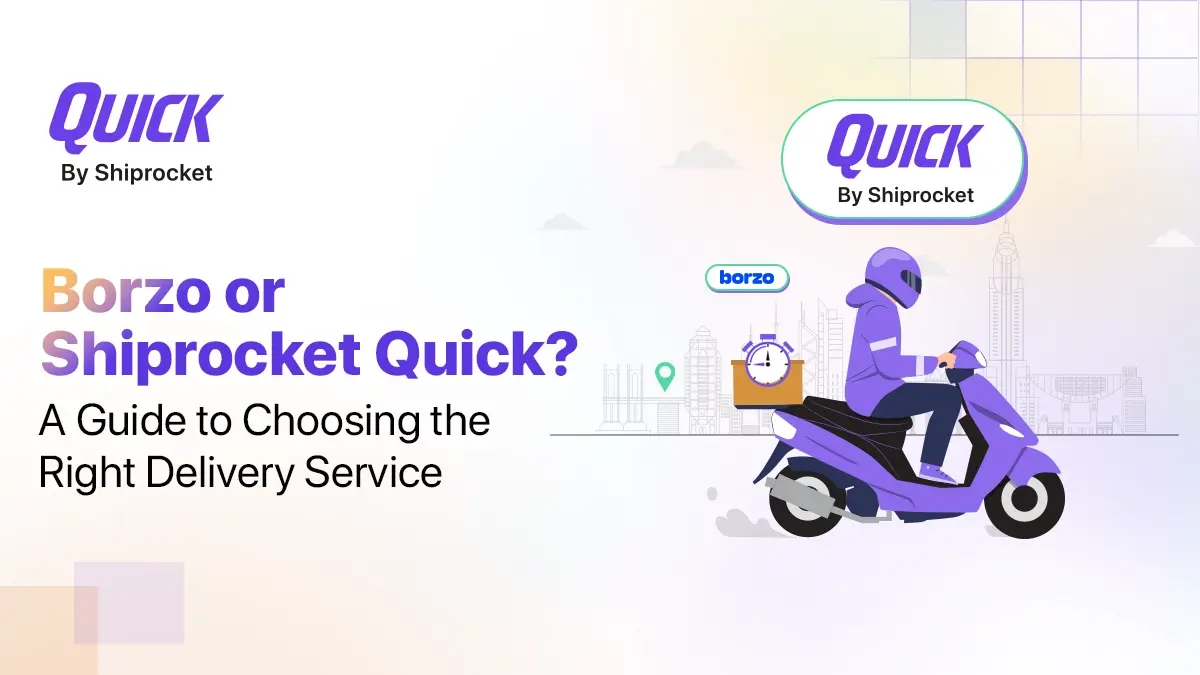What is 4PL: Importance, Benefits & Contrasts with 3PL
Fourth Party Logistics (4PL) is an advanced logistics model wherein businesses outsource their entire supply chain management to a single external provider. Unlike Third Party Logistics (3PL), which handles specific logistics functions, a 4PL provider takes over strategic oversight and integration of all supply chain activities, serving as the central point of contact. Responsibilities include resource management, technological integration, infrastructure oversight, and providing strategic insights to optimize operations. This comprehensive approach allows businesses to focus on their core competencies while enhancing efficiency across the supply chain.

Definition of Fourth Party Logistics (4PL)
In a 4PL arrangement, manufacturers outsource their supply chain management and logistics to an external provider who acts as a single point of contact between the customer and multiple logistics service providers and carriers, playing a significant role in achieving the customer’s strategic goals. It oversees warehouses, shipping companies, freight, and agents. It comes with the trade-off of reduced control over logistics and fulfillment , making it more suitable for organisations lacking logistics expertise.
A 4PL integrates resources, processes, and technologies to manage an organisation’s supply chain. They streamline activities, offer visibility, and serve as a single point of contact. Outsourcing to a 4PL partner brings advantages such as cost reduction and standardisation but also reduces control over the logistics process. Evaluating the network, considering metrics, and checking references is crucial in selecting a 4PL provider.
Importance and Relevance of 4PL in the Logistics Industry
4PL is becoming increasingly important and relevant in the logistics industry. Here are some reasons why:
- Supply chain optimisation: 4PL providers are experts in supply chain management and can help companies optimise their supply chains. By managing all logistics-related activities, they can identify inefficiencies and implement solutions to improve the supply chain’s performance.
- Cost savings: By streamlining the supply chain and optimising logistics processes, 4PL providers can help companies save costs. They can negotiate contracts with suppliers and carriers, optimise transportation routes, and reduce inventory costs.
- Improved visibility: 4PL providers use advanced technology to provide real-time visibility into the supply chain. It allows companies to track shipments, monitor inventory levels, and identify potential issues before they become problems.
- Flexibility: 4PL providers offer flexible solutions that can adapt to changing business needs. They can scale up or down depending on demand and adjust logistics processes to accommodate new products or markets.
- Risk management: 4PL providers can help companies manage supply chain risks. They can identify potential risks, such as disruptions in transportation or supplier issues, and develop contingency plans to mitigate them.
- Focus on core competencies: Companies can enhance their focus on core competencies by outsourcing logistics activities to a 4PL provider. This strategic decision enables them to allocate additional resources towards vital areas such as product development, marketing, and other key growth drivers.
- Global reach: 4PL providers have a global network of partners and suppliers, which allows them to provide logistics solutions for companies operating in multiple countries. It can help companies expand into new markets and manage logistics across different regions.
Difference Between Third-Party Logistics (3PL) and Fourth-Party Logistics (4PL)
Understanding the differences between Third-Party Logistics (3PL) and Fourth-Party Logistics (4PL) is essential for eCommerce businesses when choosing the right logistics model. The table below provides a clear comparison:
| Aspect | Third-Party Logistics (3PL) | Fourth-Party Logistics (4PL) |
|---|---|---|
| Scope | Outsourcing specific logistics functions such as transportation, warehousing, or distribution. | Outsourcing the entire supply chain management to a single provider. |
| Control | The business retains overall control of the supply chain and coordinates with multiple 3PL providers. | The 4PL provider takes on a strategic role, managing all aspects including vendors, 3PLs, and technology integration. |
| Role | 3PL providers act as service providers to execute logistical tasks. | 4PL providers serve as supply chain integrators, optimizing and synchronizing all components. |
| Benefits | Offers flexibility in outsourcing specific functions while maintaining control over the supply chain. | Provides an end-to-end solution, leading to higher efficiency through integrated supply chain management. |
Advantages of 4PL
Here are some key benefits of using 4PL services:
- Increased efficiency: 4PL providers are experts in logistics management and use advanced technologies to optimise the supply chain. They streamline processes, reduce waste, and improve delivery times.
- Cost savings: A 4PL can reduce the total cost of ownership by negotiating better rates with 3PLs, eliminating inefficiencies, optimising inventory and transportation, and implementing best practices.
- Visibility and control: 4PLs offer end-to-end visibility using advanced IT systems, analytics, and reporting tools. This enables clients to track performance, monitor status, identify risks, and make informed decisions.
- Scalability and flexibility: They offer customised and scalable solutions, managing multiple 3PLs across regions and adapting to changing business needs.
- Innovation and improvement: 4PLs drive continuous improvement through best practices, benchmarking, audits, feedback mechanisms, and by introducing new technologies.
- Improved customer experience: By enhancing supply chain efficiency and reducing delivery times, 4PLs help improve customer satisfaction, resulting in higher loyalty and repeat purchases.
Technology and Innovation in 4PL
Technology is at the core of Fourth Party Logistics (4PL), driving efficiency, transparency, and innovation across the supply chain. Here are some key technologies shaping 4PL operations:
Artificial Intelligence (AI) and Machine Learning (ML)
AI and ML enable predictive analytics for demand forecasting, route optimization, and inventory management. These technologies process vast amounts of data to generate actionable insights, helping 4PL providers proactively address supply chain challenges. For example, AI-powered algorithms can optimize delivery routes in real-time, reducing fuel costs and improving delivery times.
Internet of Things (IoT)
IoT devices facilitate real-time tracking and monitoring of goods. Sensors and connected devices provide valuable data on shipment conditions, ensuring product integrity throughout the supply chain. For instance, IoT sensors can monitor the temperature of perishable goods during transit, ensuring they arrive fresh and safe.
Blockchain Technology
Blockchain offers a secure and transparent platform for recording transactions and tracking assets. It enhances trust among stakeholders by ensuring data integrity and reducing the risk of fraud. Blockchain also provides end-to-end visibility, making supply chain operations more transparent and reliable.
Automation and Robotics
Automated systems and robotics streamline warehousing and fulfillment processes, reducing manual errors and increasing speed. Robotic process automation (RPA) can handle repetitive tasks, improving efficiency and reducing operational costs.
Sustainable Solutions
As environmental concerns grow, 4PL providers are adopting eco-friendly supply chain solutions. These include strategies to reduce carbon emissions, optimize transportation routes, and implement circular economy principles like recycling and waste reduction.
Implementation Examples
- AI and Route Optimization: AI-powered tools optimize delivery routes, cutting costs and improving delivery times.
- IoT and Real-Time Monitoring: IoT sensors ensure perishable goods are monitored continuously during transit.
- Blockchain and Supply Chain Transparency: Blockchain enhances visibility and security by providing a transparent record of transactions.
- Automation and Efficiency: Automation reduces manual errors and increases operational speed, leading to cost savings.
By integrating these technologies, 4PL providers can offer innovative solutions that meet the evolving needs of eCommerce businesses. These advancements provide a competitive edge, enabling businesses to stay ahead in a rapidly changing market.
Future Trends in 4PL
The Fourth Party Logistics (4PL) landscape is continually evolving, driven by emerging trends that are reshaping its future. Here are some key trends shaping the industry:
Sustainability
- Green Logistics: 4PL providers are increasingly adopting eco-friendly practices such as sustainable packaging, carbon-neutral shipping options, and energy-efficient warehousing to reduce environmental impact.
- Eco-Friendly Solutions: Businesses are prioritizing 4PL providers that focus on green transportation and carbon footprint reduction strategies.
Enhanced Collaboration
- Strategic Partnerships: Collaboration between 4PL providers, suppliers, and clients is fostering more integrated and efficient supply chains. This approach improves communication and resource sharing.
- Holistic Supply Chain Networks: Strategic alliances with 4PL providers streamline processes, reduce costs, and enhance operational efficiency by creating seamless supply chain networks.
Customization and Personalization
- Tailored Solutions: 4PL services are becoming more customized to meet specific business needs, especially in eCommerce. These tailored solutions enhance flexibility and address unique requirements.
- Flexibility in Supply Chains: With the rise of eCommerce, there is a growing demand for logistics solutions that can adapt to changing consumer demands and market conditions.
Scalability and Agility
- Adaptive Supply Chains: As markets become more dynamic, 4PL providers are focusing on building agile supply chains that can quickly scale operations and adapt to disruptions.
- Technological Advancements: The use of advanced technologies like AI, IoT, and data analytics enhances supply chain visibility and enables predictive decision-making, ensuring scalability and agility.
By staying informed about these trends, eCommerce professionals can effectively leverage 4PL services to achieve long-term success and maintain competitiveness in the market.
Conclusion
Fourth Party Logistics represents a strategic evolution in supply chain management, offering comprehensive solutions that drive efficiency, scalability, and innovation. Unlike traditional 3PL models, 4PL providers act as a single point of control, integrating multiple logistics providers, carriers, and technologies into a unified, end-to-end solution.
For eCommerce businesses, 4PL offers significant advantages, including scalability, cost reduction, operational optimization, and enhanced customer satisfaction. By leveraging advanced technologies, data analytics, and industry expertise, 4PL providers help businesses streamline their supply chains, improve delivery times, and manage risks effectively.
The 4PL market is rapidly growing, driven by increasing supply chain complexity and the need for integrated, resilient logistics networks. This growth highlights the importance of adopting 4PL solutions to remain competitive in today’s dynamic market.
At Shiprocket, we specialize in providing technology-driven logistics solutions tailored to the unique needs of eCommerce professionals. Our comprehensive 4PL services integrate seamlessly with your operations, enabling you to scale effortlessly and deliver exceptional experiences to your customers.
Ready to transform your logistics strategy? Contact us to discover how Shiprocket can propel your business forward.







